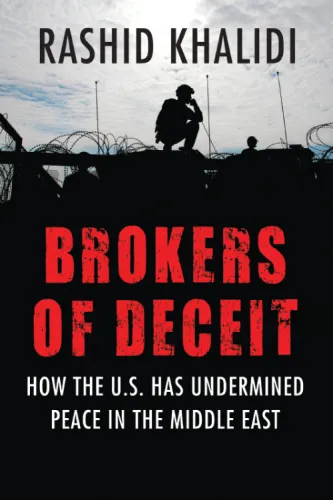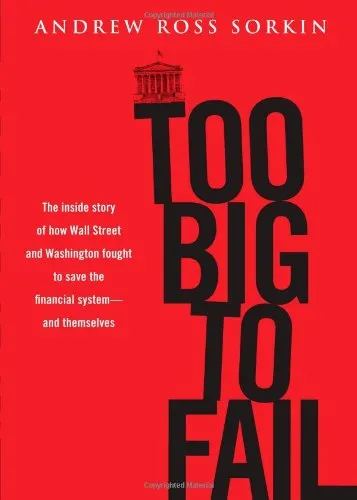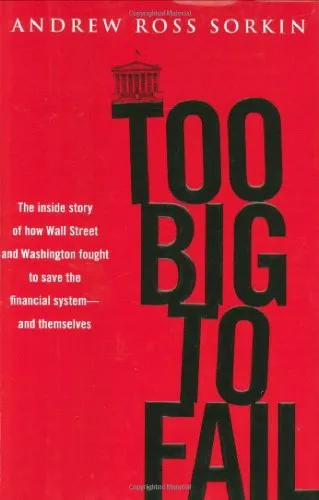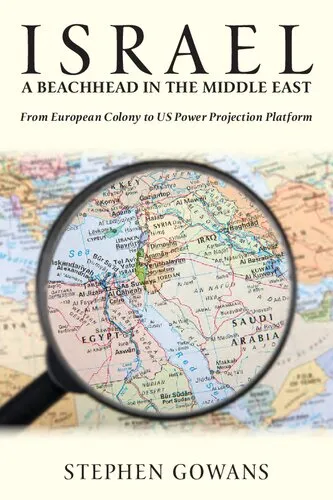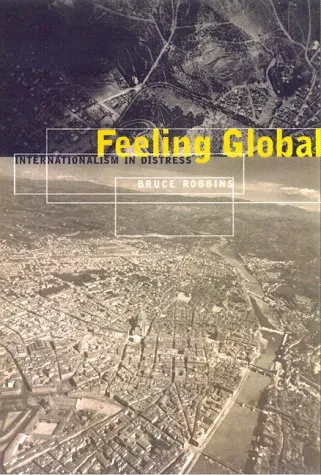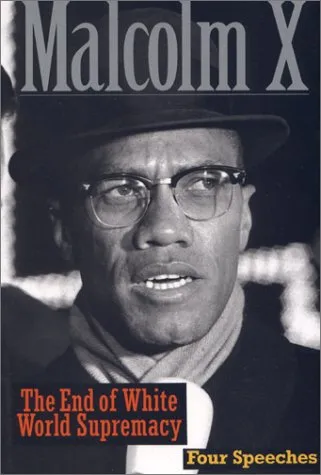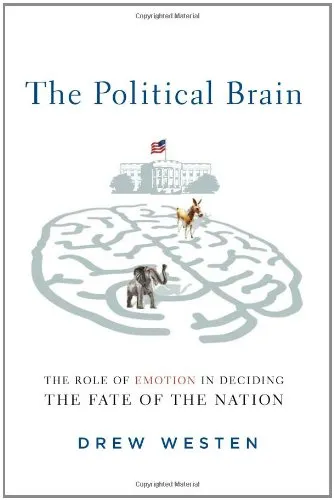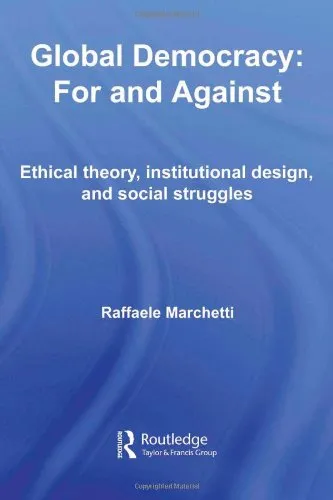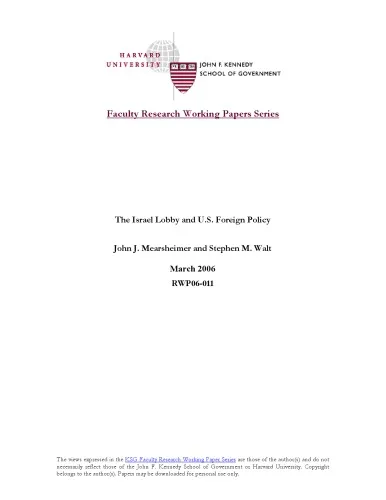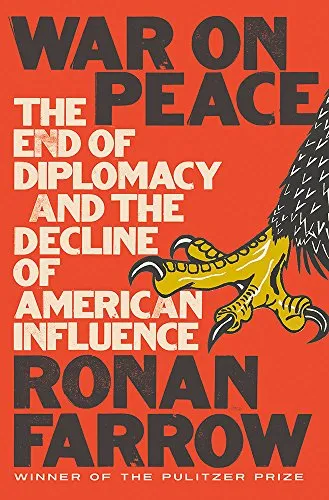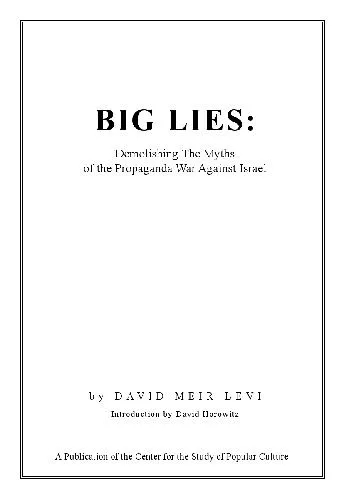Brokers of deceit: how the US has undermined peace in the Middle East
4.5
Reviews from our users

You Can Ask your questions from this book's AI after Login
Each download or ask from book AI costs 2 points. To earn more free points, please visit the Points Guide Page and complete some valuable actions.Related Refrences:
Introduction to "Brokers of Deceit: How the US Has Undermined Peace in the Middle East"
Written by Rashid Khalidi, a distinguished historian and Middle East scholar, "Brokers of Deceit: How the US Has Undermined Peace in the Middle East" offers an incisive analysis of how the United States has played an active and deeply problematic role in obstructing peace efforts between Israel and Palestine. Drawing on decades of expertise and research, Khalidi exposes the systematic bias underpinning U.S. foreign policy decisions and reveals how successive American administrations have prioritized Israel’s interests, often at the expense of justice for Palestinians and long-term stability in the region.
This book challenges the conventional portrayal of the United States as an "honest broker" in the conflict. Instead, Khalidi convincingly argues that the U.S. has consistently facilitated Israeli expansionism while undermining Palestinians' legitimate national aspirations. Through a detailed examination of critical moments in the peace process, Khalidi deconstructs the policies, language, and political maneuvers that have perpetuated this imbalance, rendering a lasting peace almost impossible. In an era where the Palestinian-Israeli conflict continues to dominate political discourse, the book serves as an essential resource for understanding the complexities of U.S. policy and the role it continues to play in shaping the region.
Detailed Summary of the Book
At the heart of "Brokers of Deceit" are three carefully chosen case studies that illuminate critical junctures in U.S.-mediated peace negotiations. Khalidi delves into the internal dynamics of these moments to demonstrate how, far from facilitating a just solution, U.S. policy has entrenched Israel’s dominance over the occupied territories and marginalized Palestinian voices.
The first case study focuses on the Madrid Peace Conference of 1991, organized under President George H. W. Bush's administration. Khalidi reveals how the seemingly promising negotiations were hollowed out by American capitulation to Israeli demands. The second case examines the infamous "Road Map for Peace" during George W. Bush's presidency, showing how it was designed to allow Israel to dictate terms while neutralizing genuine Palestinian resistance. Finally, the book critiques the Obama administration—initially seen as a beacon of hope for impartial mediation—laying bare its failure to challenge Israeli settlement expansion decisively.
Across these examples, Khalidi highlights how central figures in U.S. policymaking, from Henry Kissinger to more contemporary leaders, have framed the conflict in terms that inherently disadvantage Palestinians. Whether through the use of manipulative language, the exercise of leverage, or turning a blind eye to violations of international law, Khalidi underscores a consistent U.S. agenda: prioritizing Israeli political objectives and strategic partnerships.
Key Takeaways
- The United States is not an impartial mediator in the Israeli-Palestinian conflict but an active participant supporting Israel’s geopolitical aims.
- U.S. diplomatic language is carefully crafted to obscure the realities of occupation and inequality, sustaining the status quo.
- American administrations across party lines have largely adhered to the same biases, maintaining their commitment to Israel regardless of changing circumstances.
- Palestinian voices have been systematically excluded from negotiations, underscoring the imbalance of power at the negotiation table.
- To achieve true peace, Khalidi emphasizes the need for an honest reckoning with these entrenched biases and the adoption of policies rooted in justice.
Famous Quotes from the Book
"The United States has never been an 'honest broker.' It has always been about wielding power to achieve its own objectives, no matter the cost to Palestinians."
"The language of diplomacy is not accidental. Words are chosen to obscure, to mislead, and to protect those in power."
"In the end, it is only through acknowledging the truth of the conflict—and the role of the U.S. in perpetuating it—that we can begin to imagine a just resolution."
Why This Book Matters
The significance of "Brokers of Deceit" transcends the confines of academic scholarship. By deconstructing the political dynamics of U.S. involvement in the Israeli-Palestinian conflict, Khalidi empowers readers to critically assess long-held narratives presented in mainstream media and official discourse. The book sheds light on the structural inequalities embedded in the so-called peace process, challenging readers to reconsider the nature of international diplomacy and the assumptions that underwrite U.S. foreign policy.
As the world continues to grapple with the repercussions of the unresolved Israeli-Palestinian conflict, the insights presented in this book remain profoundly relevant. For policymakers, journalists, activists, and everyday citizens, "Brokers of Deceit" provides a vital framework for understanding the complexities of the conflict and the mechanisms by which power is wielded to silence marginalized voices. In essence, Khalidi stresses the urgent need for accountability, fairness, and justice in any meaningful attempt at peace.
Free Direct Download
You Can Download this book after Login
Accessing books through legal platforms and public libraries not only supports the rights of authors and publishers but also contributes to the sustainability of reading culture. Before downloading, please take a moment to consider these options.
Find this book on other platforms:
WorldCat helps you find books in libraries worldwide.
See ratings, reviews, and discussions on Goodreads.
Find and buy rare or used books on AbeBooks.
